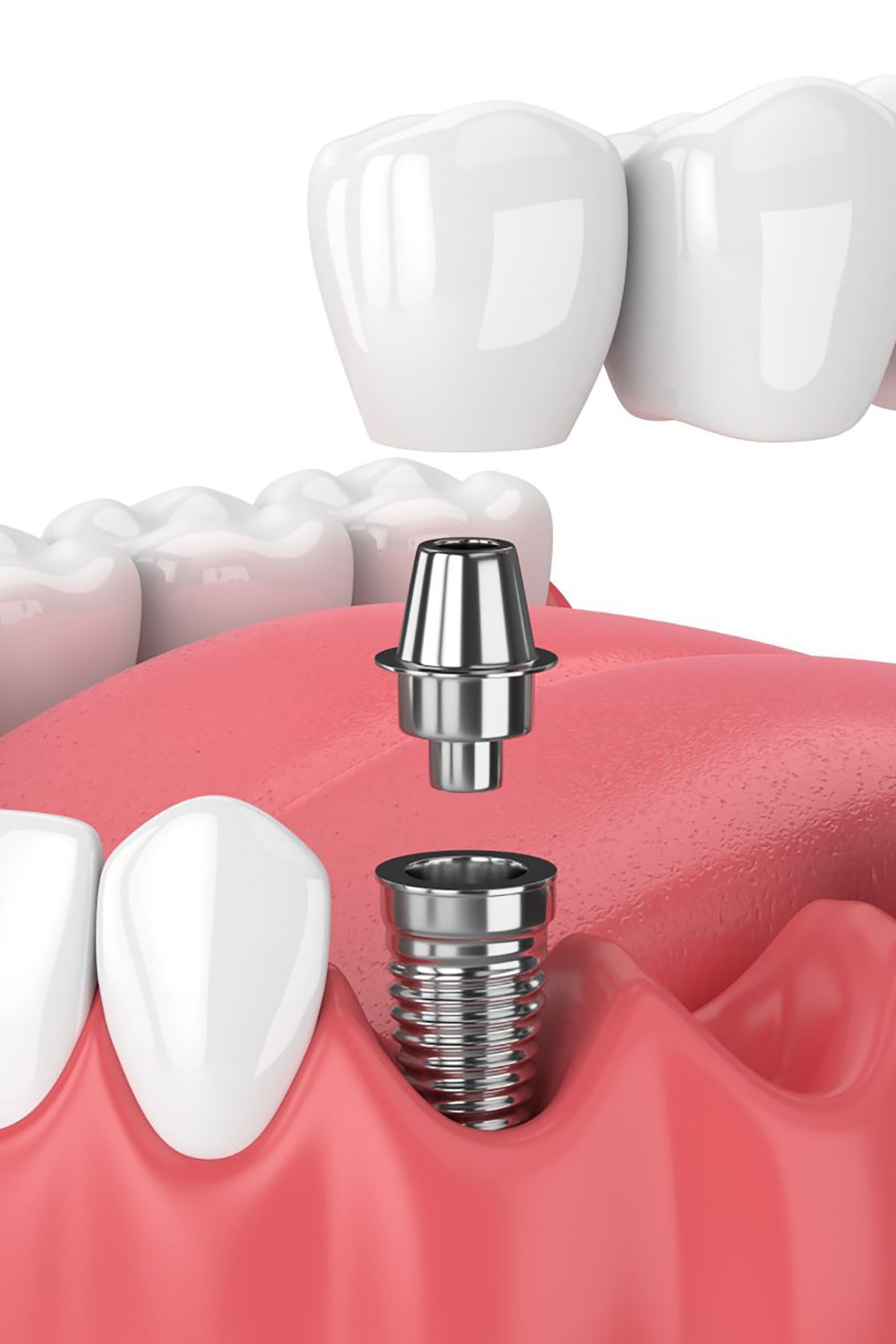Dental Implants
Make an Appointment
Online Schedule
We make your smile more beautiful and healthy
Dental implants are artificial tooth roots that are used to support a replacement tooth or bridge. They are a popular solution for people who have lost teeth due to injury, decay, or periodontal disease. Dental implants are made of biocompatible materials such as titanium, which fuses with the jawbone to provide a stable base for the replacement tooth.
The process of getting a dental implant involves several steps. First, the implant is surgically placed into the jawbone. It may take several months for the implant to fuse with the bone in a process called osseointegration. Once the implant has bonded with the jawbone, a connector post called an abutment is attached to the implant, which serves as the foundation for the replacement tooth. Finally, a custom-made crown, bridge, or denture is attached to the abutment.
Dental implants offer many benefits, including improved chewing ability, speech, and appearance. They also help prevent bone loss in the jaw, which can occur when teeth are missing. However, they may not be suitable for everyone, and the success of the implant depends on factors such as the patient's overall health, the condition of the jawbone, and proper oral hygiene. A dental professional can evaluate a patient's individual situation and recommend the best treatment options.
Types of Dental Implants:
There are several types of dental implants available, including endosteal, subperiosteal, and zygomatic implants. Endosteal implants are the most common type and are placed directly into the jawbone. Subperiosteal implants are placed on top of the jawbone but underneath the gum tissue. Zygomatic implants are used for patients with severe bone loss in the upper jaw and are anchored to the cheekbone instead of the jawbone.
Benefits of Dental Implants:
Dental implants offer several benefits, including:
- Improved Appearance: Dental implants are designed to look and feel like natural teeth, which can improve the appearance of your smile.
- Improved Speech: Missing teeth can affect speech, but dental implants can restore proper speech patterns.
- Improved Comfort: Unlike dentures, which can be uncomfortable and slip out of place, dental implants are anchored securely in the jawbone.
- Improved Chewing Ability: Dental implants are designed to function like natural teeth, allowing you to eat your favorite foods without restrictions.
- Improved Oral Health: Dental implants help prevent bone loss and maintain the integrity of the jawbone.
Risks and Complications:
Like any surgical procedure, dental implant surgery carries some risks and complications. These may include infection, implant failure, nerve damage, and sinus problems. However, with proper oral hygiene and regular checkups with your dental professional, these risks can be minimized.
Cost:
The cost of dental implants varies depending on several factors, including the number of implants needed, the type of implant, and the location of the dental practice. Dental insurance may cover some or all of the cost, and financing options may be available.
Maintenance:
Proper oral hygiene, including brushing twice a day and flossing daily, is essential for the long-term success of dental implants. Regular checkups with your dental professional are also necessary to ensure the health of the implant and surrounding teeth and gums.

Our Doctors Meet Our Dental Specialists
Make an Appointment
Online Schedule










